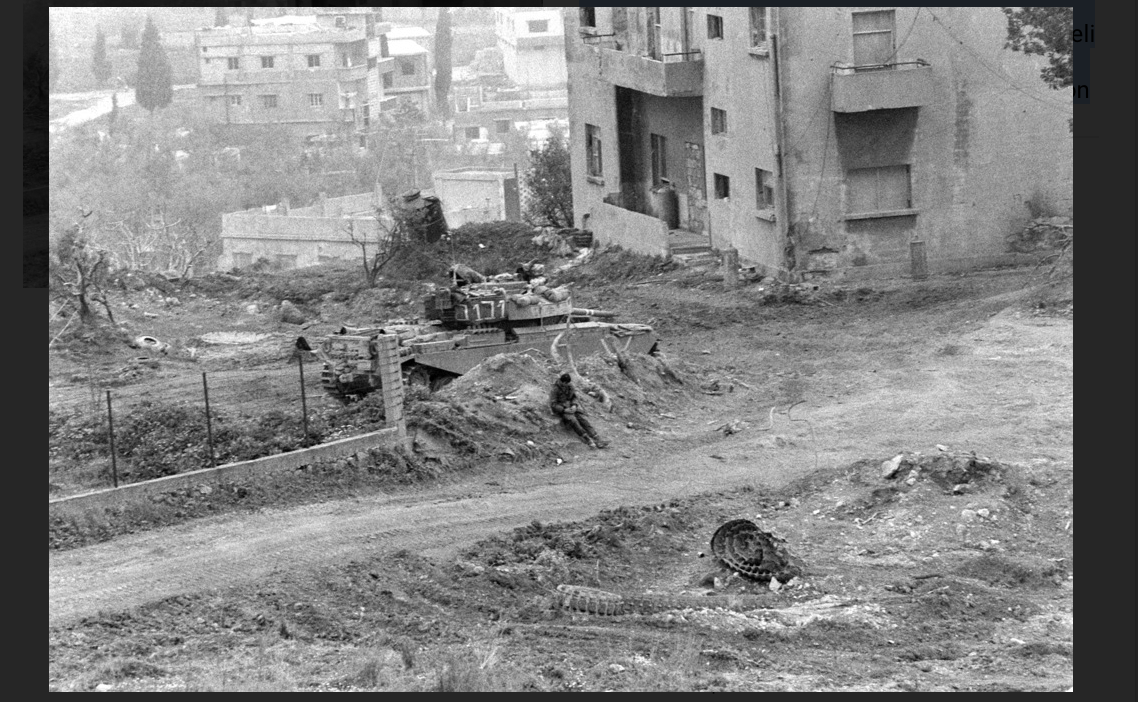1034: Palestinian corruption rules. @GhAlOmari, Malcolm Hoenlein, @conf_of_pres

Image: A tank protects the British Compound in Beirut during the ongoing confrontation between Israeli forces and the Palestine Liberation Organization Ghaith al-Omari, @GhAlOmari, and Washington Institute, and Malcolm Hoenlein, @conf_of_pres, Conference of Presidents, in re:Palestinian Authority elections & the Abraham Accords. Bad actors, like the Muslim Brotherhood . . . UAE will provide incentives for Israel to move forward, to consolidate regional peace. I’m skeptical that Palestinian elections will take place. Both Hamas and the PA have shown no interested in giving up power. Each has a lot to lose and very little to gain. Qatar and Turkey not interested in seeing the remaining Muslim Brotherhood regimes leave power. Europeans sceptical the elections would create a meaningful breakthrough. The main actor to have influence would be Jordan, which is coordinating closely with Egypt and Saudis. Its interest is stability. Focus on more practical and predictable steps. The Abbas dos very well with large telephone contracts. Corruption. We will condition our aid on reform. They’ll start reforming only if hey have a very clear message from the intl community, led by the US. Eighty per cent of Palestinians believe that their government is corrupt. Ghaith al-Omari, a senior Fellow in The Washington Institute's Irwin Levy Family Program on the U.S.-Israel Strategic Relationship, is the former executive director of the American Task Force on Palestine. He served as advisor to the negotiating team during the 1999–2001 permanent-status talks in addition to holding various other positions within the Palestinian Authority. https://www.france24.com/en/live-news/20201220-in-refugee-camps-palestinians-prepare-for-post-abbas-power-struggle https://palwatch.org/page/18508 https://www.washingtoninstitute.org/policy-analysis/normalization-can-inject-new-life-arab-peace-initiative https://www.washingtoninstitute.org/policy-analysis/risks-palestinian-authoritys-outreach-qatar-and-turkey